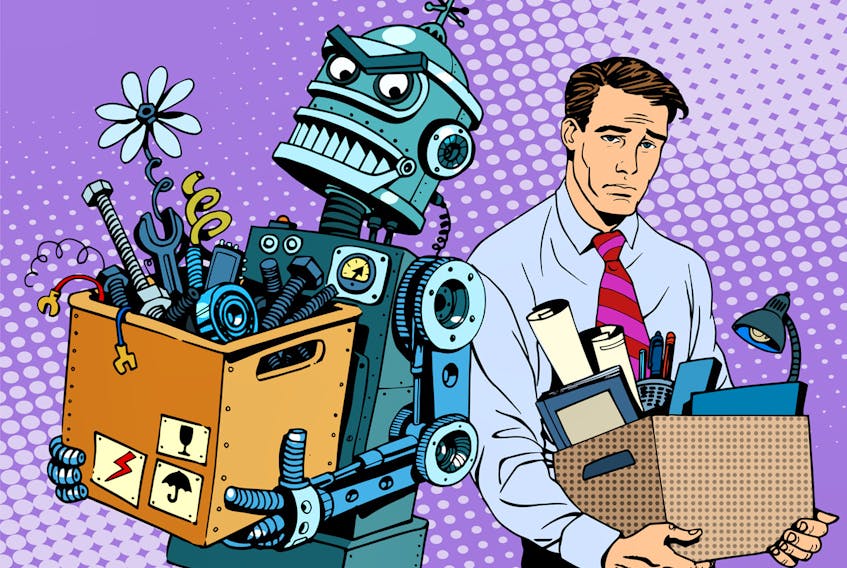I watched a presentation this week from Peter Diamandis at Abundance360. The subject was on the impact of technology on jobs. It is an important issue that brought me back to a recent conversation I had with someone in government.
A fundamental consideration of the current labour market is that jobs are on the cusp of extraordinary and rapid disruption.
As a CPHR and observer of the local labour market, I was recently asked if I was concerned about challenges to source and secure employees for the manufacturing sector. My response was ‘no’, the roles will be automated.
This was not the expected reply, but it is a pragmatic consideration. No one, certainly not me as a recruiter, wish to see job elimination. The reality though: transformation is upon us. It is moving rapidly, and no force will stop the process. Adaption to these new realities is essential.
Societies have experienced many technological transformations through our history. None will be as rapid as the impact of mechanization and artificial intelligence (AI). In the longer-term we will flourish. In the short-run, the displacement will be profound. This disruption is immediate and unforgiving.
Pick any sector from healthcare to education and the effects of AI and robotics can be measured. A local example, the core pillar of the PEI’s economy, trucking. In 29 US states, the largest employer by industry is trucking. Over 5 million people in the US are employed in the transportation sector from trucking to taxi and Uber. In PEI there are roughly 3,500 associated with the sector and 95 per cent of all good delivered on the Island arrive by truck. Toyota and GM are in a race to deliver the first fleets of autonomous delivery vehicles; by 2019 GM will be providing autos without steering wheels or pedals. Before the end of the decade your pizza could be delivered without a driver.
The impact to society is not only profound but emotionally disruptive. How do displaced find meaning and self-worth in a contribution deficient existence? How does government motivate and more importantly adapt its citizens, which communities will lead labour retooling? This is not a consideration forecasting 20-years into the future, it will need to be addressed 3-5 years out.
Government will require a new social contract with citizens. Displaced will need to find new ways to participate and contribute to society. Elon Musk considers the necessity of a universal guaranteed income as people transition, while Bill Gates doesn't feel most countries can afford the necessary investment. This concept has been studied and social experiments within Canada demonstrate the positive benefits of this income stabilization.
Business will need a social conscience as they deploy new technologies. Government clearly cannot lead with solutions. Workforce and Advanced Learning are still investing and building capacity for recruitment and networking. Never has functional leadership been more vacuous. The days of government induced ‘manpower’ are well behind us, we need greater vision than holding the wheel of the Titanic as the icebergs approach.
Technology has the potential to advance positive change, and disruption in its wake. As an Island community we need to be considering short-term adaptation and longer-term positioning.
Blake Doyle is The Guardian's small business columnist. He can be reached at [email protected].









